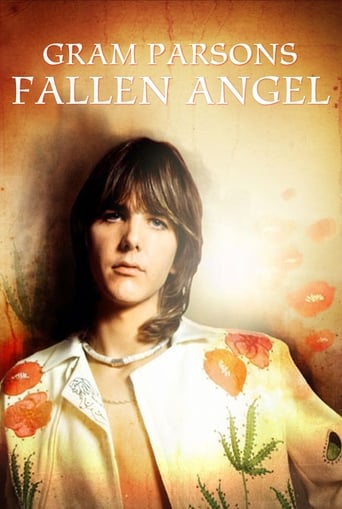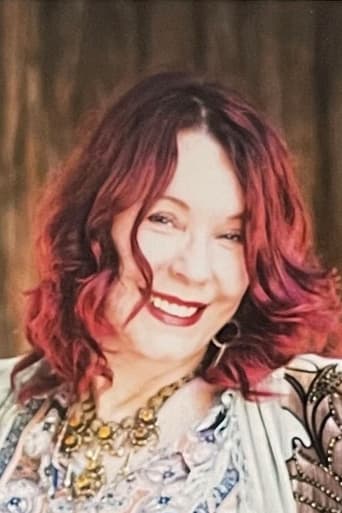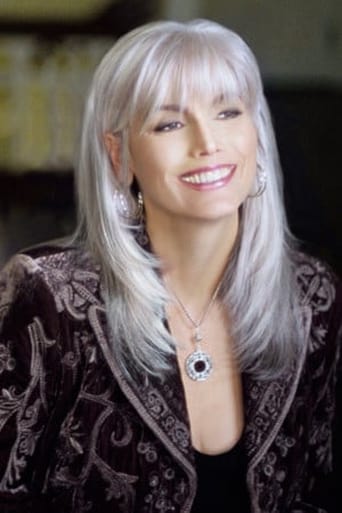

Fallen Angel: Gram Parsons (2004)
On September 19, 1973, the musician and heir to a million-dollar fortune died under the influence of drugs and alcohol near his favourite place - the Joshua Tree National Monument in the Californian desert. As the founder of the Flying Burrito Brothers, a member of the hit-making, legendary Byrds, an important influence on the Rolling Stones and the man who catapulted Emmylou Harris to fame, Gram Parsons made music history in only a few years. Friends, contemporaries and devotees of Gram Parsons talk about the importance of his work and the bizarre circumstances of his early death. Rare footage of his performances shows why Gram Parsons has become a legend. Interviewees include Gram's wife Gretchen, his sister and his daughter, Keith Richards, Emmylou Harris, Chris Hillman and "Road Manager" Phil Kaufman.
Watch Trailer
Cast
Reviews
Don't listen to the negative reviews
Best movie ever!
When a movie has you begging for it to end not even half way through it's pure crap. We've all seen this movie and this characters millions of times, nothing new in it. Don't waste your time.
This is a coming of age storyline that you've seen in one form or another for decades. It takes a truly unique voice to make yet another one worth watching.
I too wish there had been a little more depth in this movie. However, when my sister saw it at the screening at the Belcourt Theatre in Nashville, along with many of Gram's close friends and colleagues, she never heard anyone voice some of the complaints registered here.I think calling Gram "obnoxious" is too simplistic. He obviously had his obnoxious moments, but most highly creative people do. It's part of that artistic temperament you've heard tell of. However, I don't think most people could have registered the emotion they showed had Parsons merely been a gifted jerk. This is where the movie shines. The directors show some of the people who genuinely cared about Parsons as a person, and how his untimely death affected them.I understand the attempt to show Parsons as more than the very pretty face and voice idolized so often. I think the filmmakers wanted audiences to understand Ingram Parsons as a human being, a guy who had a lot of breaks in his life, but who also had a legion of demons chasing him. I actually found myself liking this man a lot by the end of the movie. Parsons was a basically nice, decent guy who had a lot of bad wiring, not the least of which included an inborn tendency to addiction. I felt incredible pity for him.I hope this movie spurs viewers to listen to Parsons' music and to appreciate the influence he had on popular music. If it does that, it has done its work well.
I already wrote a comment saying how i loved the movie Fallen Angel.I wrote what a drip Gretchen seemed compared to Emmylou. Gram had already left Gretchen, i have know doubt he would have ended up with Emmylou, they were meant for each other.The fact that Gretchen doesn't GET why Gram's body was taken out to the Joshua tree reinfects how little she knew the man. I do think that it could all have been handled better, the cremation should have been completed, but Gram's resting place will always be at the Joshua Tree, no matter what people like Gretchen and family members think.I don't understand why you didn't print my last comment. Not only does "Love Hurt", but i guess "Truth Hurts" too.Gretchen tried to make it seem that Gram had gone off to dry out, right, that's why he had drugs and a chick with him. He has already left Gretchen. If anything she drove him out rather than dried him out. Print the facts.
Having just seen the film I was shocked by the previous comment which seems way off beam to me. I don't think that there is anything shoddy about the editing or camera work, though a great deal of the footage is original super 8 material that obviously has all the flaws of being shot by men on drugs.Most of all I felt that this was a wonderfully composed documentary that took as it's subject Parsons' life as a whole, rather than concentrating on his all too brief recording career. It is clear that the director felt that the demons which created Gram's music and which pursued him to his early death came from his opulent childhood, the early and shocking suicide of his father, the death from alcoholism of his mother and the alleged role in this of his step father Bob Parsons. Consequently we hear from Gram's half sister, from Bob Parsons' other daughter (with his second wife) and from Bob Parsons' friend because these are all people who can shed light on these events which are so vital in understanding Gram's life. The relationship between Gram and Bob was complex and obviously very important to Gram and I felt the inclusion of all of these people made for a powerful portrait of Gram Parsons.Overall I thought the documentary was balanced, fair, enthralling and with an excellent calibre of interviewee (not only in that we hear detailed accounts from greats like Emmy Lou Harris and Keith Richards but that the team have dug deep and seem to have got hold of people who knew Gram at every stage in his life). It discusses all the aspects and issues of Parsons' life, loves and death without stooping to gossipy tittle-tattle about who slept with who. I think the previous commentator must have seen an entirely different film, the one I've just watched is brilliant.
Among the most fascinating and ultimately saddest stories in American popular music is the brief life and odd afterlife of Gram Parsons, one-time Byrd, Burrito Brother, quasi-Rolling Stone and inventor of the "cosmic American music" that became alt-country or Americana after his death. Fallen Angel: Gram Parsons, a UK-Germany television production that screened as part of the Portland Reel Music festival, is a feature-length documentary that explores Parsons' life and musical legacy with a host of the musicians and family members who knew him best. Director Gandulf Hennig a small and hyperactive German hosted the screening in Portland, and was clearly blown away by an audience queue that extended around the block, forcing a sold-out showing and emergency late-night screening for the remaining audience.What is clearest about the Parsons documentary is that everyone who knew him realized they were in the presence of genius - a completely self-destructive and obnoxious genius, but genius nonetheless. His most prominent musical partners, including Chris Hillman of the Byrds, Keith Richards of the Stones, and Emmylou Harris, testify so eloquently. But the same self-assured genius made Parsons almost completely unbearable as a musical, romantic, or family partner, and he tore down relationships that could have saved him and enriched music immeasurably, alienating himself from his most dedicated allies. It's also clear that in his abbreviated life, Parsons was able to play key roles in some of the most significant musical transformations of his era - taking the Byrds into proto-country, performing on the bill with the Stones at the disastrous concert at Altamont, bringing Emmylou Harris to national attention, and playing an active role in the rediscovery of American roots and country by the rock audiences of the time. Keef in particular expresses his remorse at playing with Parsons, recognizing his gifts and his talent, and not recognizing how Parsons' own habits and weaknesses were threatening his prospects to continue his musical growth (Mick Jagger, not interviewed here, is depicted as a far more competent professional who tried to encourage Parsons to take his career, health, and family life more seriously).I was never a huge Parsons fan; my knowledge of his musical legacy comes from the performances by other musicians of his songs. But seeing the old concert footage - from sophisticated live sets to ramshackle house jams - makes it clear that he was a true one-of-a-kind, with a gorgeous voice and spectacular physical beauty, coupled with songwriterly gifts that were just beginning to grow - before alcohol and drugs caused caused his eventual decline and death at the age of only 26.I'm much less interested in the morbid tale of Parson's afterlife - the theft of his corpse and his partial-cremation in the desert by a road manager. But as Peter Buck of R.E.M. says in the film, that sort of mystery explains a large part of his mystique.My only complaint about the documentary, which is incredibly detailed, loving, and sympathetic to both Parsons' survivors and his musical colleagues, is that the director puts too much emphasis into talking-head commentary and fails to show any complete performances, or any live footage longer than a minute or so long. Additionally, there were either very few interviews ever recorded with Parsons or Hennig chose not to include them. As a result it's harder to get a sense of how Parsons himself spoke or expressed himself.


